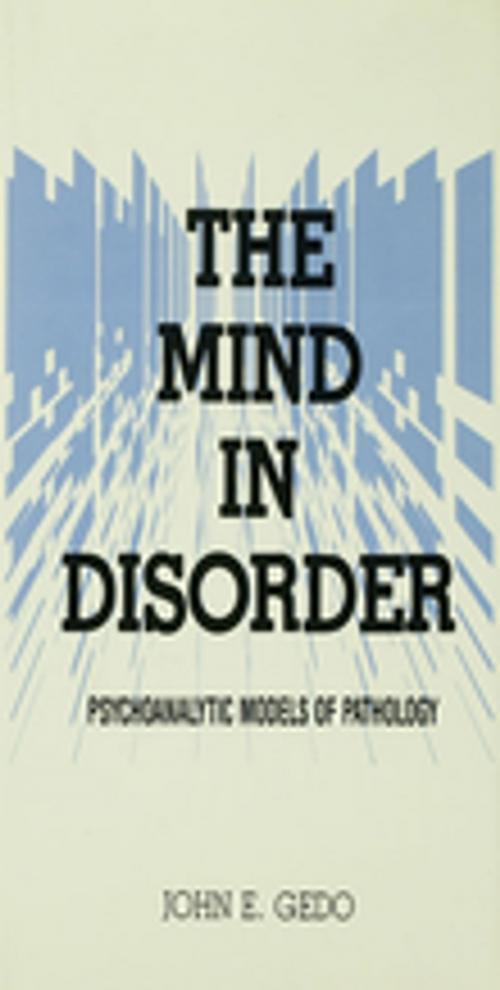The Mind in Disorder
Psychoanalytic Models of Pathology
Nonfiction, Health & Well Being, Psychology, Pathological Psychology, Psychotherapy, Mental Health| Author: | John E. Gedo | ISBN: | 9781134878574 |
| Publisher: | Taylor and Francis | Publication: | May 13, 2013 |
| Imprint: | Routledge | Language: | English |
| Author: | John E. Gedo |
| ISBN: | 9781134878574 |
| Publisher: | Taylor and Francis |
| Publication: | May 13, 2013 |
| Imprint: | Routledge |
| Language: | English |
Anchoring his schema in the belief that nonorganic disorders are disturbances in adaptation explicable within a depth-psychological framework, Gedo posits two broad categories of functional disorder: "apraxias" that represent any failure to learn adaptively essential skills, and disorders of what her terms "obligatory repetition." Within both categories of disorder, Gedo avers, the vicissitudes of mental functioning are understandable in terms of regression to relatively archaic modes of function and the reversal of regression and return to expectable modes of adult function.
It follwos from Gedo's understanding of how and why the mind becomes disordered, that diagnosis utilizing psychoanalytic principles can only be based on the succession of transference constellations encountered in treatment, since these constellations invariably pinpoint the developmental impasses in which maladaptive repetitive patterns and the failure to learn basic psychological skills are rooted. For purposes of understanding a variety of apraxic and repetitive disorders, Gedo equates such basic skills not only with the three major psychobiological attainments he has invoked in the past, but with the development of adequate perception, cognition, affectivity, and communication skills.
Beautifullu organized, lucidly written, and richly illustrated with case vignettes, The Mind in Disorder is not only the thoughtful yield of an outstanding clinician's three decades of experience. It is also the first psychoanalytic book since Otto Fenichel's masterwork of 1945, The Psychoanalytic Theory of Neurosis, to take the issue of how we conceptualize psychopathology as its central focus.
Anchoring his schema in the belief that nonorganic disorders are disturbances in adaptation explicable within a depth-psychological framework, Gedo posits two broad categories of functional disorder: "apraxias" that represent any failure to learn adaptively essential skills, and disorders of what her terms "obligatory repetition." Within both categories of disorder, Gedo avers, the vicissitudes of mental functioning are understandable in terms of regression to relatively archaic modes of function and the reversal of regression and return to expectable modes of adult function.
It follwos from Gedo's understanding of how and why the mind becomes disordered, that diagnosis utilizing psychoanalytic principles can only be based on the succession of transference constellations encountered in treatment, since these constellations invariably pinpoint the developmental impasses in which maladaptive repetitive patterns and the failure to learn basic psychological skills are rooted. For purposes of understanding a variety of apraxic and repetitive disorders, Gedo equates such basic skills not only with the three major psychobiological attainments he has invoked in the past, but with the development of adequate perception, cognition, affectivity, and communication skills.
Beautifullu organized, lucidly written, and richly illustrated with case vignettes, The Mind in Disorder is not only the thoughtful yield of an outstanding clinician's three decades of experience. It is also the first psychoanalytic book since Otto Fenichel's masterwork of 1945, The Psychoanalytic Theory of Neurosis, to take the issue of how we conceptualize psychopathology as its central focus.















